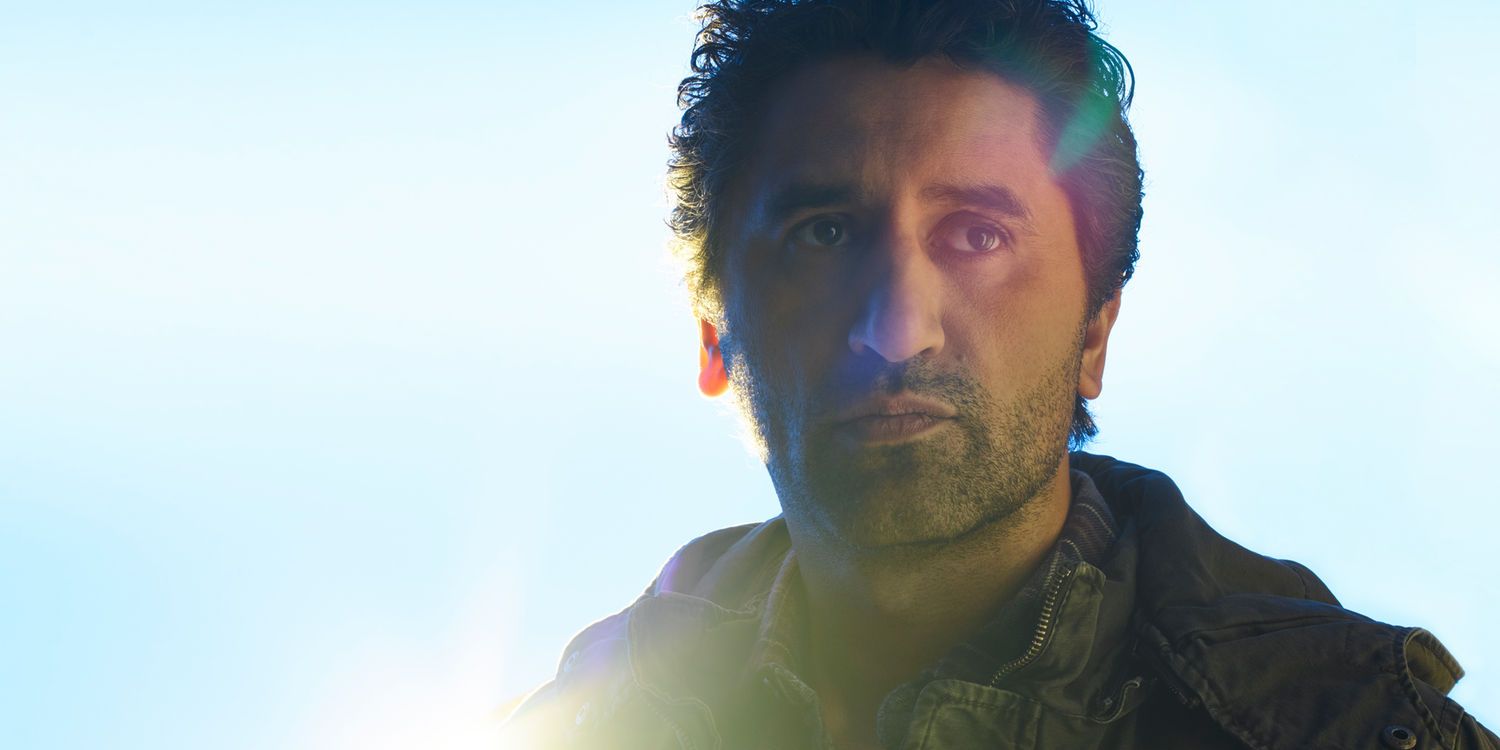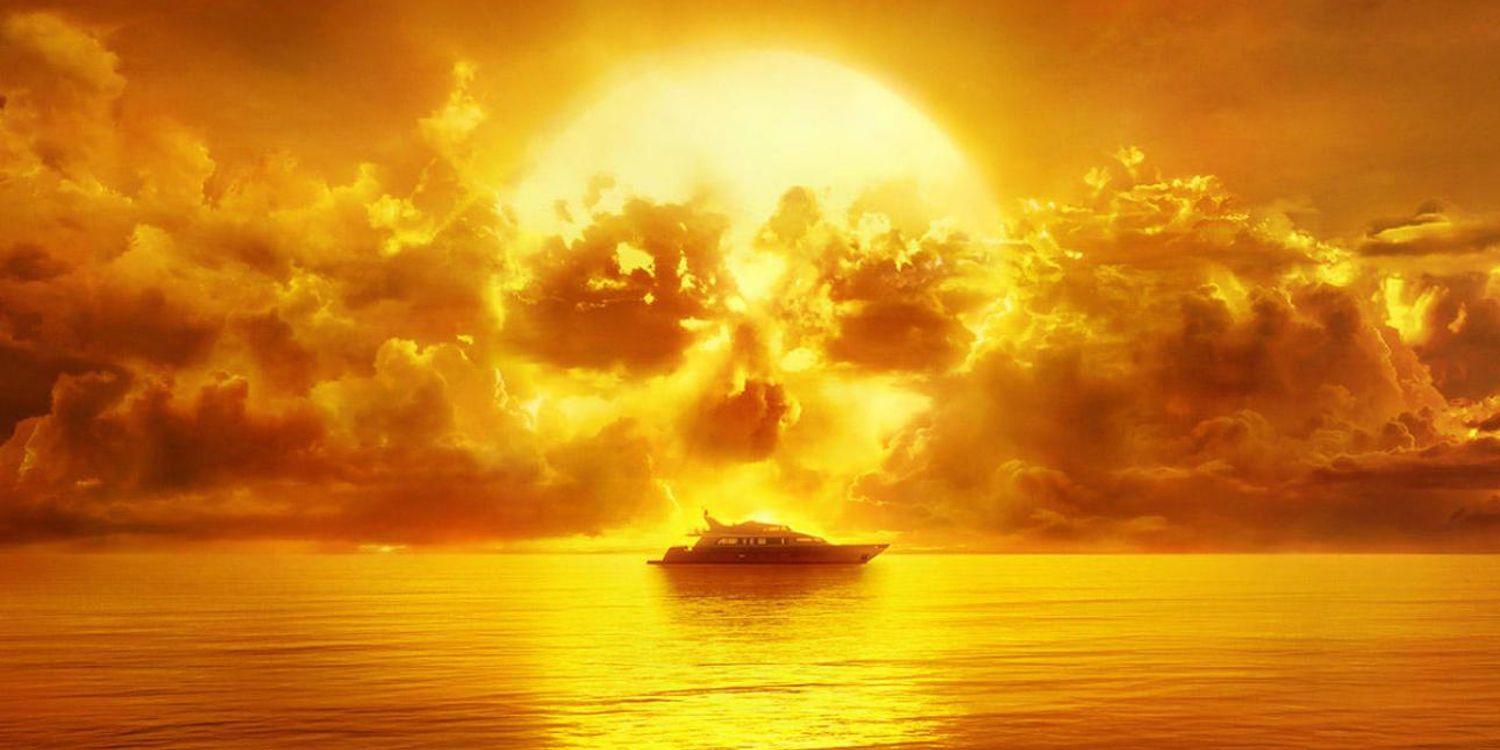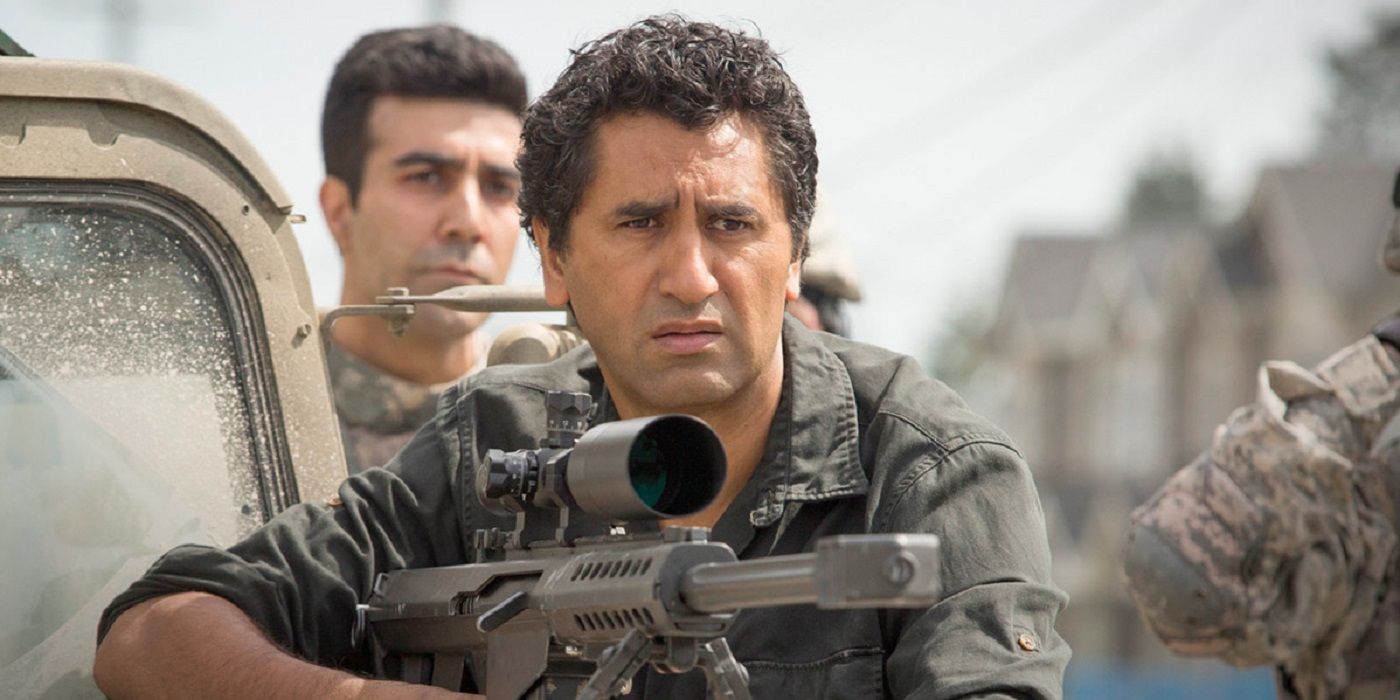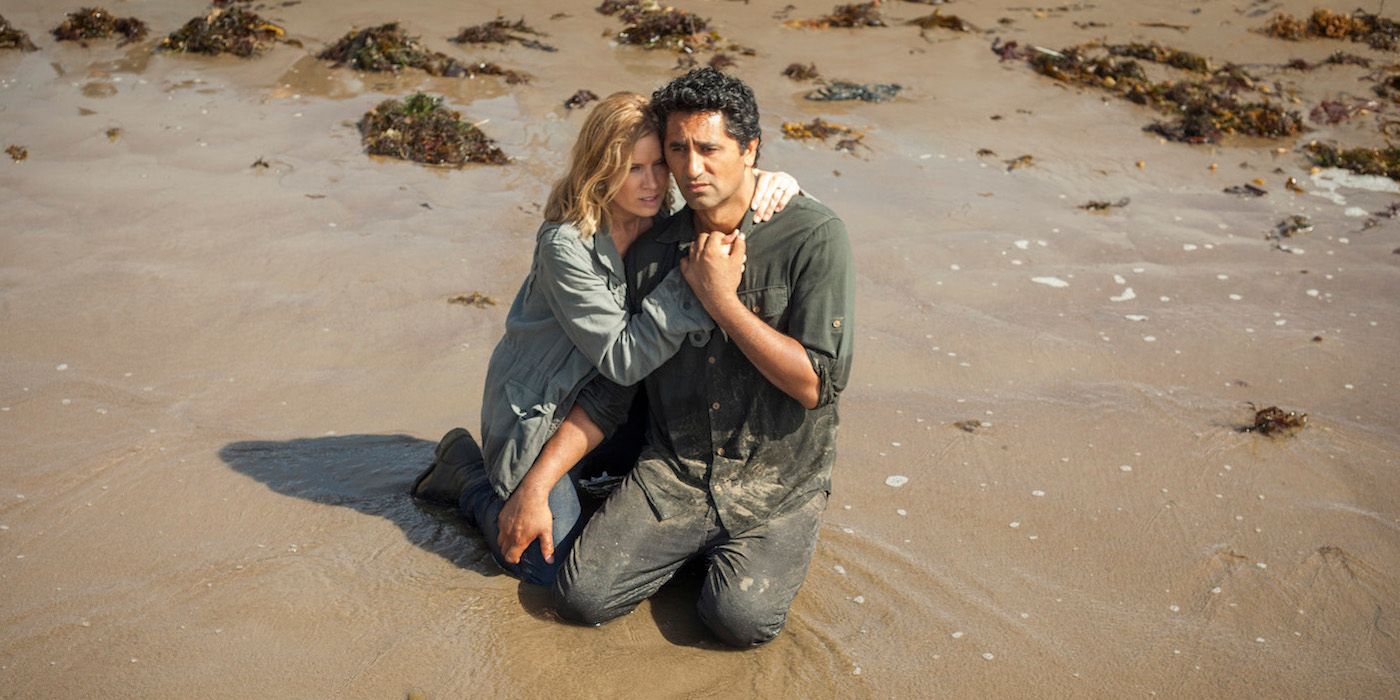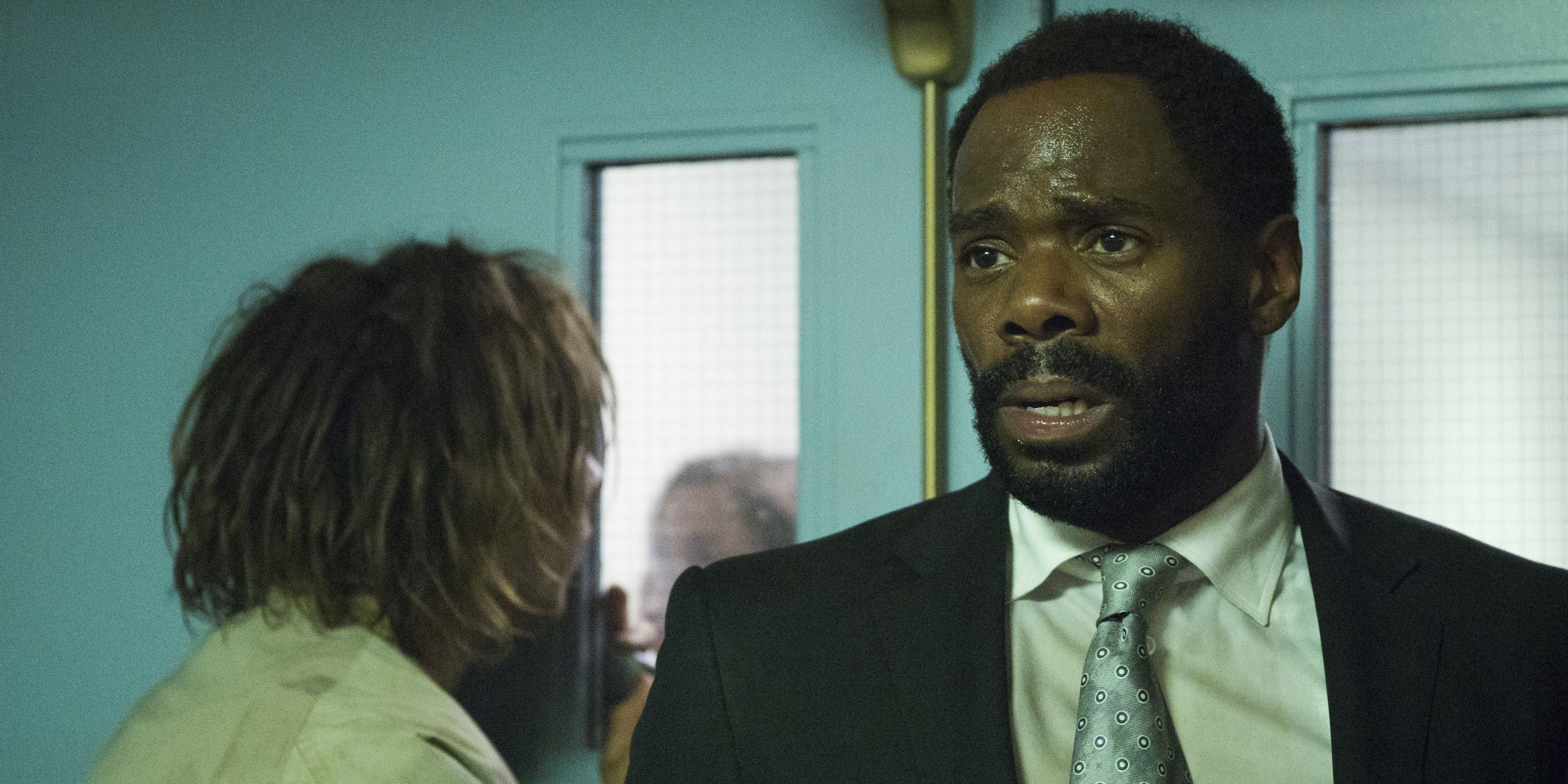In season 1, Fear the Walking Dead took viewers through the first few weeks of the zombie apocalypse, turning presumably millions of Los Angeles residents into wandering corpses with a hankerin' for some human flesh. For fans fond of its predecessor, the appeal of seeing the early days of the end of days was a big part of the show's initial appeal, as that is typically the best part of any fiction involving the undead – walking or otherwise.
As a prequel to AMC's monster hit series The Walking Dead, however, Fear faced a familiar uphill battle in that, by virtue of its premise, everyone watching was already aware the outcome of the larger story, so where does the tension come from? Well, for seasoned actors like Cliff Curtis (Three Kings, Bringing Out the Dead), who plays family man and high school teacher Travis Manawa, the tension comes from the show giving the audience interesting, three dimensional characters so that their tour through the tattered landscape of society's collapse matters more than whatever ambiguous destination lies ahead.
In an interview Curtis gave to Screen Rant, he said it was the creators' focus on making their characters compelling and to drive the series through their unique individual voices and experiences that initially caught his attention.
[The interview has been edited for length and clarity.]
What was it like going into something like Fear the Walking Dead, taking a leading role where you are playing a family man and a teacher who finds himself in a situation he doesn't necessarily have the skills we normally associate with characters in stories like this?
"I was really impressed with the creators and their commitment to making a show that was driven by character, and wasn't just a shoot-'em-up and wasn't just killing zombies. It was a clear commitment to developing these characters as real people. I didn't expect that. I was expecting a lot more badassery, you know? But I really enjoyed that they were clearly committed to not taking that route and really connecting with the characters and their journey.
"I thought that was really fun. There were moments on set where I was like 'Surely he'd do something at this point' and the producers would say, 'No, no, that's not the show we're making.' They were really clear and I though that was fantastic. I really enjoyed it. It was a completely unconventional way to approach a lead in that circumstance. What that does when you see a character move into that kind of extreme then you're sort of saying he's got the furthest to travel to come to terms with this new world that they're living in."
Travis makes an interesting shift over the course of season 1. He goes from being something of an optimist and a pacifist to someone who is carrying around a gun and assaulting people he sees as a threat. How did you respond to seeing Travis' arc over the season?
"That was really satisfying. Again, it was just so unexpected that [the writers] would make those choices and not have [Travis] more battle-ready as it were… but that they didn't give the audience that, because, in a way, that would be a lot easier. But they also try to distinguish [Fear the Walking Dead] from the other show, you know? There're a lot of badasses. I even suggested once that Travis have a military background, but they were like "No, no we don't want that guy. We want somebody people can really relate to as someone they recognize, maybe even in themselves." Not everybody has a family member who is Special Ops and stuff. I think everybody or every family has had to deal with a high-school teacher or a teacher in their family life."
One of the things The Walking Dead series is known for is the idea that no one is safe, or that anyone can die at any time. That was certainly true when Travis did what he had to with his ex-wife in the closing moments of season 1. How do you think that is going to shape Travis' actions and his worldview moving forward into season 2?
"I know they spent a lot of time trying to figure out which character was going to go. And it was a really surprising turn for that [Travis]; it's just not his philosophy in life, being an optimist and an idealist and having these family values and working to build community. That's just pretty much the worst possible situation that he can imagine and the thing that means most to him is his family, like his son and new family with his girlfriend and her children. It just seems like the most terrible thing that a father could do. The most interesting part is how he's going to resolve his relationship with his son and how are they going to move forward?
I have requested to see Travis get in there and get in the mix a bit more, but the thing is we've already got characters like that. Kim's character is quick to act and is much quicker to adapt than my character. And you've got these other fantastic characters like Salazar who's just battle-worn, weary, and ready to chop up people. And then you've got this other fox in the hen house, Victor Strand. And he's probably the most intriguing and most interesting character, because there're all these questions surrounding him. Who is he? What's he about? And what does that mean for [the show's] growing family? So we've got these very masculine characters and if we were all sort of running around doing the same thing, I don't think that's the show we are. I think the other show has got like an elite team of badasses; it's kind of much more action hero-y, which is fantastic entertainment that people love but I think they're really creating a distinction between our show and theirs in that way. So I don't know where that leaves old Travis. But it will be interesting to see how the guy changes having lost someone he loves and seeing how it creates this huge rift in his relationship with his family. He's kind of crossed the line. The Travis that we saw in season 1 can't be the Travis that we see in season 2. He's got to change in some way; he has to. You can't do that not have it affect you."
Will Travis think differently about the life of his child (Chris) versus someone else's, or did Liza's death just reinforce the idea that all life is precious?
"I think that's the other option. I think Travis could become more resolute in his commitment to humanity. We bounced ideas back and forth about what's the most unlikely route for this character to go. And if he really does believe in humanity and he believes in the idea that if we just go around surviving and killing we're going to lose our humanity, Travis has to ask: does he want to be that type of human? Does he truly believe in his philosophy? It's all very good in theory, but you know when you get a horde of zombies coming at you or someone that you love that's when you get put to the test."
At the end of season 1, Travis and his family are presumably going to board a yacht with Victor Strand. From Travis' perspective do you think he sees Strand as someone he can trust, or is he more of a sinister presence Travis will have to keep an eye on?
"I love Strand. As an audience member I think he's one of the most fun characters in the whole show in terms of the potential of who and what he could be. And so I'm so glad to have that element and that type of character on our show. I think it really, really helps us as an ensemble. At the same time, I don't think Travis – it's tricky, because I've been quoted as saying 'I don't like Strand.' I love Strand, but I don't think Travis likes him at all; he's the antithesis of what Travis believes in as a man. As much as [Travis] doesn't get on with Salazar, he can relate to his family values even though he feels Salazar is corrupted by his ideas and ideals. He justifies the ends by the atrocities that he's committed in his life. But we don't know who Strand is and there's something about Travis that just really intuitively, instinctively says, "This guy's got no family. He's got no commitment to anybody, and so therefore he will use and he will take and he'll throw any one of us off the boat." So from Travis' point of view, [Strand] is the least trustworthy character. But for me as an audience member? Long may he live."
Would you describe Travis as the moral center of the show? And if so, how long do you think he can sustain that role as he gets deeper into season 2?
"He's certainly to my point of view the moral center of the show. How long he can sustain it? He might be an idealist and an optimist and even a pacifist, but I think he comes from a real place of strength. He's not a pushover and he's not afraid to stand up to someone, he's not afraid to defy the military, especially when he feels he's in the right and he's morally correct. I think there's a lot more fight left in him than the average person in terms of holding on to that moral code, and therefore then it's just a matter of finding a survival rationale where he can maintain his humanity but do what needs to be done.
That is who Travis needs to be for as long as possible. Otherwise he becomes a killing machine -- and I'm up for that I'm up for playing a guy like that any day of the week, but I don't think it's as interesting as somebody who goes through that personal and philosophical dilemma about when does one take a life and what rationale does one employ to justify that as a correct action? That's simply who he is. Travis will change if the events of the world have completely broken him and he becomes something else. And that's a real possibility of a genre like this, so never say never."
-
Fear the Walking Dead season 2 premieres Sunday, April 10 @9pm on AMC.
Photos: AMC

